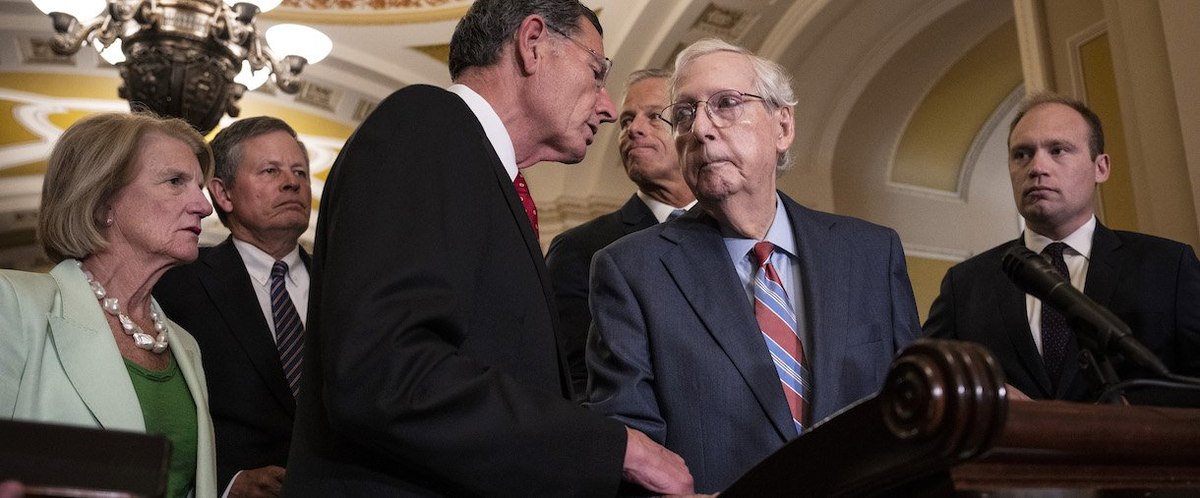Following Mitch McConnell's second freezing episode last week, which prompted concern among his colleagues, new Economist/YouGov polling finds that a growing share of Americans believe the Senate minority leader's health and age severely limit his ability to do his job. The share of Americans who say this is 59%, up 8 percentage points from a month ago and 31 points from three months ago. Majorities of Democrats (58%) and Republicans (61%) say McConnell is severely limited.
Negative opinions about McConnell, a Kentucky Republican, also are reflected in the 66% of Democrats and 58% of Republicans who have a somewhat or very unfavorable opinion of him, and the 63% of Democrats and 52% of Republicans who somewhat or strongly disapprove of how he is handling his job.
Nearly as many Americans have concerns about Senator Dianne Feinstein, who like McConnell has faced a series of health challenges in recent years: 56% say the 90-year-old California Democrat's abilities are severely limited by her health and age, including 48% of Democrats and 66% of Republicans. Far fewer are concerned about Senator Bernie Sanders, who at 81 is the same age as McConnell: 35% say the Vermont Democrat is severely limited by his health and age, including 20% of Democrats and 51% of Republicans.
Many Americans also are concerned about how the health and age of Joe Biden would affect his ability to serve a second term as president. More than half — 57% — say the 80-year-old president would be severely limited if he were to win re-election in 2024. Significantly fewer — 30% — say Donald Trump would be severely limited by his health and age if the 77-year-old former president were elected next year.
About half of Americans (52%) say that old age "hurts elected officials by making it more difficult to do the work their positions require," while just 12% say it "helps elected officials to have the experience and wisdom to do a good job."
Large majorities of Americans believe there should be a maximum age for someone to serve in the U.S. as president (76%), senator (73%), or member of Congress (72%). When asked what the maximum age should be, the average ages given (between the range of 35 and 100) are 67 for president and 66 for senator and member of Congress (the median age given is 70 for all three positions). If an age limit of 66 were in effect, almost half of senators currently in office would be ineligible, as the median age of current senators is about 65.
Nikki Haley, a 51-year-old Republican presidential candidate and the former governor of South Carolina, recently repeated her call for mental-competency tests for politicians over the age of 75, saying that “they need to let a younger generation take over.” Three-quarters of Americans (76%) strongly or somewhat support mandating such a test and releasing the results to the public. Support for mental competency testing is bipartisan, with 70% of Democrats, 75% of Independents, and 84% of Republicans in favor of it.
See the toplines and crosstabs from the Economist/YouGov poll conducted on September 2 - 5, 2023 among 1,500 U.S. adult citizens.
Methodology: Respondents were selected from YouGov’s opt-in panel using sample matching. A random sample (stratified by gender, age, race, education, geographic region, and voter registration) was selected from the 2019 American Community Survey. The sample was weighted according to gender, age, race, education, 2020 election turnout and presidential vote, baseline party identification, and current voter registration status. Demographic weighting targets come from the 2019 American Community Survey. Baseline party identification is the respondent’s most recent answer given prior to November 1, 2022, and is weighted to the estimated distribution at that time (33% Democratic, 31% Republican). The margin of error for the overall sample is approximately 3%.
Image: Getty (Drew Angerer)















